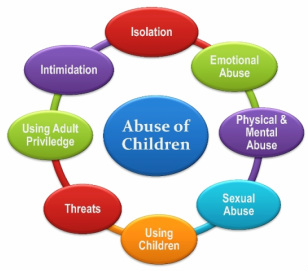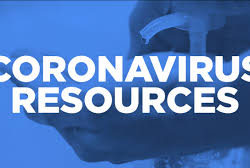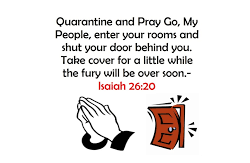Sexual abuse is probably the most under-reported and most damaging crime in America, one in which the
youngest and most vulnerable are the victims. Current statistics reflect that somewhere between 20 and 40
percent of girls (and one in six boys) are victims of unwanted sexual contact before the age of 18. The secrecy
that surrounds the subject of sexual abuse, however, would indicate that such abuse is more common than is
reported.
Sexual abuse occurs whenever a person—child or adult—is sexually exploited by an older or more powerful
person for the satisfaction of the abuser’s needs. The range of abuse is broad; it includes verbal, visual, and/or
physical activity that is engaged in without consent. . . . One of the most crucial factors in our understanding of
child sexual abuse is that it occurs in the context of relationship with an adult from whom the child had every
reason to expect protection, warmth, and care. In most cases, the abuse is perpetrated by an adult who has
ready access to the child by virtue of authority or kinship or is someone known to the child. (In less than 12
percent of reported cases, the child is abused by a stranger—someone completely unknown to the child.) The
majority of abusers of both male and female victims are male and most perpetrators are considerably older than
their victims.1
The effects of child sexual abuse are far reaching—both in the present damage done to the developing child
and in the child’s future. The child must usually deal with the repercussions of betrayal of trust,
powerlessness, terror, and pain alone and in silence. (“The average child makes nine attempts to disclose the
abuse before someone responds. Boys often have more trouble than girls in saying they have been abused.”
Doris Sandford, Love Letters: Responding to Children in Pain, Portland: Multnomah Press, 1991.) Adults
abused as children often experience symptoms of Post-Traumatic Stress Disorder—intrusive memories,
flashbacks, nightmares, disassociative episodes when present stressors trigger memories of the past trauma.
Guidelines For Helping An Adult Survivor Of Childhood Sexual Abuse
Do. . .
Recognize the honor a person gives you if he or she chooses to tell you that he or she was sexually
abused. In telling you, the person is deciding that you are a safe person. Never underestimate the
courage it takes to say, “I was sexually abused,” for the first time. To drag to light what has been a
well-kept secret for decades is terrifying.
Realize that the sexual abuse of a child has deep and enduring consequences. This is especially true
when the abuser was a family member, the child was very young, and the abuse was kept a secret for
a long time.
Be willing to witness great pain. You will see great pain, hard questions, and anger. Many of us are
uncomfortable with such things and want to make them go away.
Be willing to believe the unbelievable. Sitting with an incest survivor brings you face-to-face with
some of the most evil and twisted things human beings do to each other.
Examine your own attitudes before God. Coming alongside a survivor of sexual abuse forces you to
face your own preconceptions about sexual abuse, pain, good and evil, justice and injustice, males and
females.
Assist the survivor in seeking professional help. The consequences of sexual abuse are complex.
Help him or her find someone who has expertise in this area.
Find others who will help you form a support network for the survivor. A group of safe, loving
people is better for the survivor and for you.
If the survivor is married, help the spouse find support and assistance in understanding the issues.
If the survivor is single, he or she may need a place to stay at times. Being alone with tormenting
memories and nightmares is frightening.
1 Langberg, Diane Mandt, Counseling Survivors of Sexual Abuse (Wheaton, IL: Tyndale House Publishers,
Inc., 1996), pgs. 61-63.
A SAFE PLACE MINISTRIES QUICK
LOOK
2002 Safe Place Ministries
Understand that dealing with memories of trauma almost always results in nightmares. A survivor
can go through months and months of night terrors. Having someone to call in the middle of the night
from a support network or through a crisis hot line is helpful.
Find out whether the survivor has a drug or alcohol problem.
Take any suicide threat seriously. Notify the counselor or take the survivor to a medical facility if he
or she is threatening suicide.
Understand that healing takes time. God has created us to live in time, and we heal in time. Healing
from sexual abuse is not a quick process. It shatters many fundamental things. Our God is a God of
redemption, but he usually works through people over time. Be patient. Then be patient some more.
Be aware of your vocabulary, your timing, and your body language. When we sit with someone in
great pain, words of hope and peace are often our first response. Don’t rush in. Listen. Words of love
and hope will begin to make sense only as they are fleshed out in a relationship with you. I prayed
earnestly for a woman I was working with years ago, asking God to show her how much he loved her.
His answer: “You show her. You want her to know how much I love her? Then you demonstrate that
love to her.”
Be prepared for repetition. The survivor will need to tell the story many times. Your reassurances,
your faith, and your hope will need repetition. You will need to speak truth again and again. The lies
are strong.
Don’t . . .
Don’t think that sexual abuse does not occur in seemingly “good” families. It happens in pastor’s
homes, choir director’s homes, and “upstanding citizens’” homes.
Don’t minimize what happened. Saying “At least you weren’t killed” does not help the survivor. All
sexual abuse is serious, even if the abuse occurred only once or if it never went beyond fondling. All
sexual abuse is a violation of God’s love.
Don’t imply that the survivor is to blame for the abuse. Nothing is justification for abuse.
Don’t excuse the abuser. Whatever the abuser’s problems, they are never a mandate for abuse.
Don’t react with visible shock, horror, or disgust.
Don’t be afraid of anger and grief. Such feelings will be intense. If there is no emotion with the
telling, then the survivor is probably still denying the impact.
Don’t simply tell the survivor that he or she must forgive and forget. To tell the survivor to forget is
ludicrous. The truth needs to be faced before the survivor will even know what needs forgiving.
Forgiveness is the work of the Spirit of God, not a switch we flip on. A survivor can ask God to teach
him or her how to forgive the evil of abuse. No survivor can just produce forgiveness. It is
supernatural to forgive.
Don’t think the survivor simply wants attention. Sexual abuse is shattering. The survivor needs
attention, and you are right to give it. Love the survivor. Then love some more. And when you run
out of love, get on your knees and plead with God to fill you with more of his love so you can go and
love some more.
~ Used by permission from Diane Mandt Langberg, On the Threshold of Hope, pages 199-202.
If A Child Discloses Sexual Abuse. . . .
Tell the child that . . .
You believe what he/she has told you.
He/she did the right thing in telling you and that you will help.
You need to tell certain adults who can protect him/her so the
abuse will stop.
Remain outwardly calm. Visible shock may be interpreted as
feelings about the child.
Call the state’s Child Protective Services and report the abuse. If you are not sure if the abuse occurred,
trust your instincts and notify authorities.
Additional Resources
The Wounded Heart, Dan Allender.
On the Threshold of Hope, Diane Mandt Langberg.
Counseling Survivors of Child Sexual Abuse, Diane Mandt Langberg.
When Trust is Lost, Dan Allender, Radio Bible Class.





